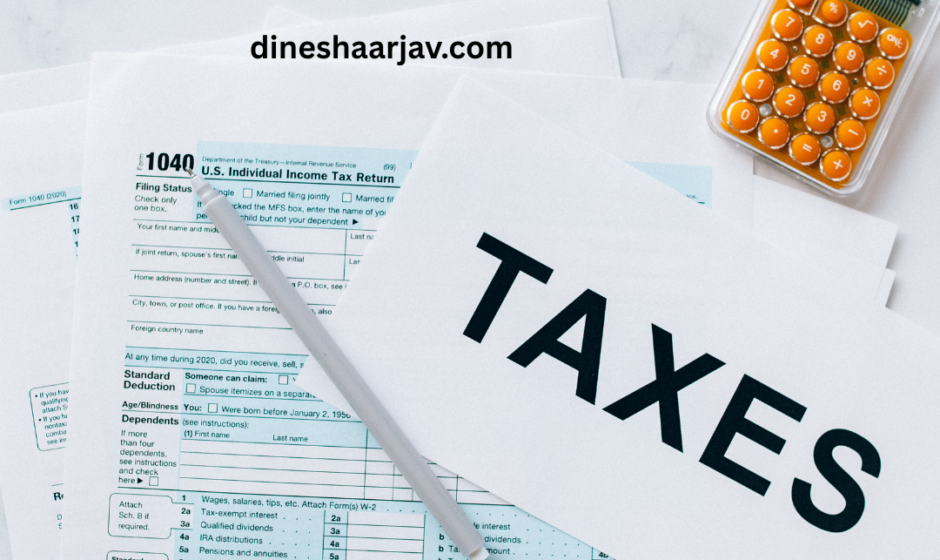As a Non-Resident Indian (NRI) earning income in Canada or having financial ties with the country, understanding your tax obligations is essential. Whether you’re an NRI living temporarily in Canada, have investments, or have moved back to India but retain some Canadian income, you may still have to file a Canadian tax return.
This blog explains when and how NRIs should file their Canada tax return, the rules around residency, and key tips to manage tax obligations effectively.
Who Is Considered an NRI for Canadian Tax Purposes?
In canada tax return for NRI Canadian tax law, the Canada Revenue Agency (CRA) classifies individuals based on residency status, not citizenship. So, even if you are an Indian citizen, you may be considered a resident, non-resident, or deemed resident depending on your ties to Canada.
You are typically considered a non-resident if:
-
You live outside Canada for most of the year
-
You have no significant residential ties (e.g., home, spouse, dependents) in Canada
-
You are not employed or conducting business in Canada on a regular basis
Important: Your tax obligations in Canada depend on this residency status. NRIs must be careful in determining whether they’re taxable on worldwide income or only Canadian-sourced income.
Do NRIs Need to File a Canada Tax Return?
Yes, NRIs may still need to file a tax return in Canada if they have Canadian-sourced income, such as:
-
Employment income earned while working in Canada
-
Rental income from Canadian property
-
Capital gains from selling Canadian real estate
-
Pension income from Canada Pension Plan (CPP), Old Age Security (OAS), or RRSP withdrawals
-
Business income earned in Canada
Even if you don’t owe any tax, filing a return might be necessary to claim refunds or tax treaty benefits.
Canadian Income Tax for NRIs: What’s Taxable?
If you’re a non-resident, you’re only taxed on your Canadian-source income. Here’s how it works:
✅ Common taxable income for NRIs includes:
-
Salary or wages from employment in Canada
-
Investment income (dividends, interest)
-
Rental income from Canadian real estate
-
RRSP/RRIF withdrawals or pensions
-
Capital gains from selling taxable Canadian property
✅ Common income not taxed in Canada for NRIs:
-
Foreign income (e.g., Indian salary, rental, or business income)
-
Investments outside Canada (unless connected to a Canadian business)
Withholding Tax for Non-Residents
Canada usually applies a withholding tax of 25% on certain types of income paid to non-residents (such as dividends, pensions, interest, and royalties). However, tax treaties (such as the India-Canada Double Taxation Avoidance Agreement – DTAA) can reduce this rate.
Examples of reduced rates under DTAA:
-
Dividends: 15%
-
Interest: 15%
-
Royalties: 10-15%
-
Pension: Often reduced or exempted depending on type
To benefit from treaty rates, NRIs must complete Form NR301 (Declaration of Eligibility for Benefits Under a Tax Treaty) and submit it to the Canadian payer.
When and How to File a Tax Return in Canada as an NRI
📅 Filing Deadline:
-
April 30th of the following year (e.g., April 30, 2025, for income earned in 2024)
If you have tax owing and file late, you may be charged penalties and interest.
📝 Required Forms:
-
T1 General – Income Tax and Benefit Return for Non-Residents
-
Section 216 return for rental income
-
Section 217 return for pension or annuity income (if electing to be taxed as a resident)
📎 Documents to Keep Ready:
-
T-slips (e.g., T4A, T5, T3)
-
Rental or property sale details
-
RRSP/RRIF statements
-
CRA-issued tax identification number (SIN or ITN)
-
NR301 if claiming treaty benefits
🖥️ How to File:
-
Use NETFILE (CRA-approved software, if eligible)
-
Mail a paper return to the CRA International Tax Office
-
Hire a Canadian tax consultant familiar with non-resident taxation
Special Cases: Property Sale by NRIs in Canada
When an NRI sells real estate in Canada, they must:
-
Notify CRA before the sale or within 10 days using Form T2062.
-
Pay withholding tax, usually 25% of the gross sale price.
-
Apply for a Certificate of Compliance from CRA.
-
File a Section 116 return to report capital gains and claim refund if overpaid.
Failing to report property sales can lead to hefty penalties.
Claiming Refunds and Tax Credits
While NRIs usually don’t qualify for most resident-based credits (like GST/HST credit or Canada Child Benefit), you may still be eligible to claim:
-
Refunds if taxes withheld exceed your actual tax liability
-
Tax treaty benefits
-
Rental or business expenses (under Section 216/217 returns)
Key Tips for NRIs Filing Canadian Taxes
✅ Determine your tax residency status correctly – This affects what income is taxable.
✅ Keep complete records – CRA may ask for receipts or documentation later.
✅ Use treaty benefits – India and Canada’s tax treaty can help reduce withholding tax.
✅ Don’t delay in filing – Penalties can apply even if you don’t owe tax.
✅ Get professional help – A Canadian tax consultant with international expertise can simplify the process and help maximize refunds.
Final Thoughts
Filing a tax return in Canada as an NRI is not just about compliance—it’s also about optimizing your tax position and avoiding unnecessary penalties. With a clear understanding of your residency status and income sources, and by leveraging the India-Canada tax treaty, you can file confidently and efficiently.
If you’re unsure about your obligations or need help with complex tax situations such as property sales or retirement income, consider consulting a tax expert with experience in NRI taxation.


